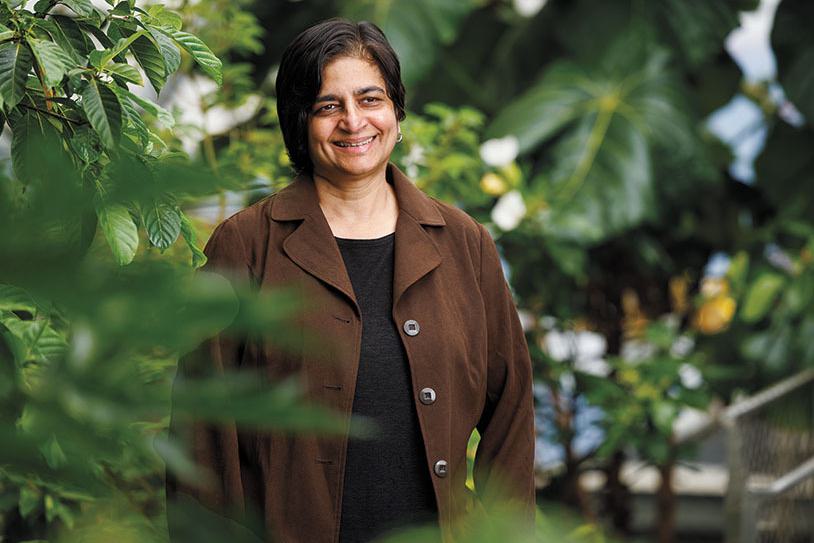In June, Andrew Shennan moved out of an office he had been occupying since 1999—as associate dean of the College, Lia Gelin Poorvu ’56 Dean of the College, and, since 2010, provost of the College. During send-off events in the spring, colleagues remarked on Shennan’s brilliance, kindness, optimism, ability to see arguments from many angles, level-headedness, devotion to the College, and his continuing commitment to neckties in a business-casual era. Shennan will take a sabbatical and then return to the history department as a member of the faculty. Editor Lisa Scanlon Mogolov ’99 sat down with him before he passed the baton to his successor, Courtney Coile, the William R. Kenan Jr. Professor of Economics at Wellesley.
What are some of the College’s biggest successes of the past 25 years?
I feel the College has stewarded our beautiful campus really well during these past few decades. We have in some areas restored it, in some areas invested in it in the way that we needed to do to make it work for a 21st-century college. We still have a lot of work to do, but Wellesley has committed to being on the path and to finishing the work, and so I feel very good about that.
I think that as an academic institution, we are stronger and stronger. I think that our faculty is more respected in their professional world outside the College than ever, but equally committed to the education and mentoring of our students. And I think our students are accomplished in ways that are continually setting the standard. The whole College, I believe, sets a standard for liberal arts institutions, as a place that can be on the cutting edge of both undergraduate education and outstanding scholarly research.
Any particular moments that you’re proud of?
I feel very proud about the way we came through the pandemic. I feel very proud about how everybody really pulled together and prioritized the students who had the misfortune to be college students during a once-in-a-century public health crisis. The whole institution did a fantastic job that we should be proud of, and that will be one of the things that, when people look back on this period in the College’s history, they will say that Wellesley was really well served by.
What are some of the challenges ahead?
I think the task of leading an institution like this gets continually harder, to be honest. The pressures on the College in terms of how we’re viewed in the world just seem to grow and grow. To my mind, we are in a much, much stronger financial situation now than we were a decade ago. It hasn’t been easy, but I feel we have made progress. But still, when you look to the future … making sure that the absolute best and brightest can come here without regard to their capacity to pay is going to be just a continually growing challenge.
What else have you been reflecting on?
The thing about staying in the job for a long time, especially a job like this, is that you have to be accountable for the decisions that you make. You stay around to see the consequences of the things that you do. If I go down in College history for anything, it’s probably going to be the grade deflation policy [which was implemented in 2004 and rescinded in 2019]. But you know, I hope that we as an institution can give that lesson to our students, that it’s OK to change your mind, adapt to things, and to learn from experience, and not to get one’s own ego so invested in things.
Do you know what courses you’ll be teaching when you head back to the classroom?
No, I don’t. But I have some thoughts about gaps that we have in our curriculum that I might be able to fill. That was always actually the most satisfying part of my work life, and you know, I’ve been away from it for 25 years. It will be different, of course, but the fundamental work of helping students to discover their intellectual passions and learn to question, critique, debate, write—I’m looking forward to doing that again.




Post a Comment
We ask that those who engage in Wellesley magazine's online community act with honesty, integrity, and respect. (Remember the honor code, alums?) We reserve the right to remove comments by impersonators or comments that are not civil and relevant to the subject at hand. By posting here, you are permitting Wellesley magazine to edit and republish your comment in all media. Please remember that all posts are public.